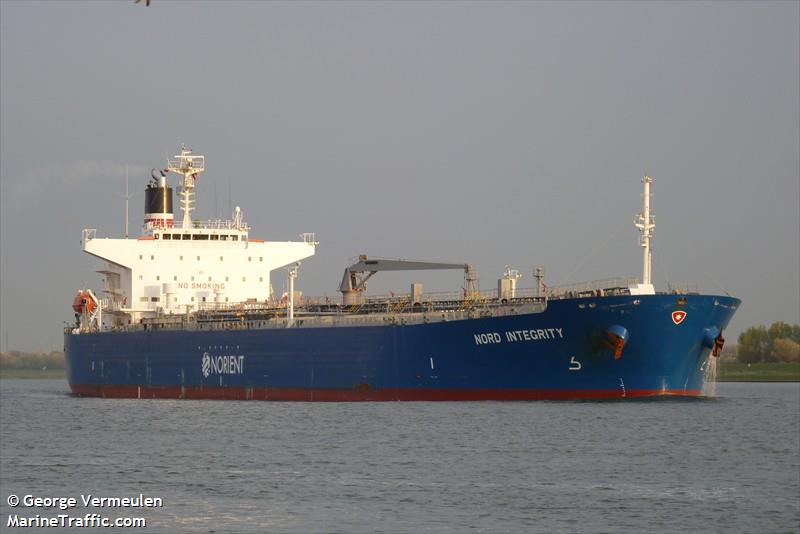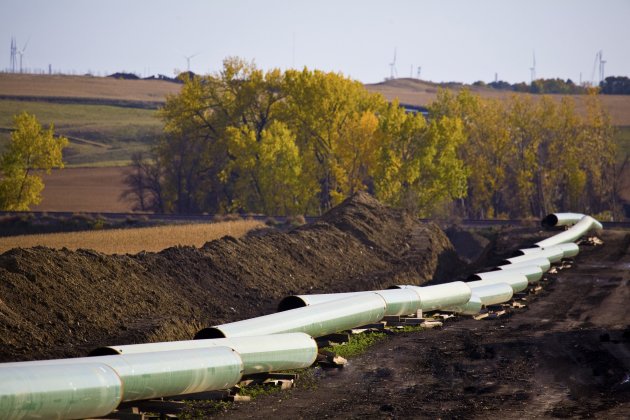Despite the market bumping along at low levels, large tanker rates have recently shown some signs of life and could find further support as we enter the second half of 2013.
Demand from the US should perk up as refiners wrap up seasonal turnarounds and after several hiccups, the Motiva refinery has reportedly been ramped back up to full capacity.
Highlighting this, the Energy Information Administration (EIA) reported that in the week ending 22nd March, US refinery utilisation was at 85.7% of capacity, up nearly five percentage points compared to two weeks earlier, McQuilling Services said in its latest report.
However, since the start of 2013, VLCC spot rates have been under pressure as a result of the usual suspects of excess tonnage availability and relatively weak demand.
The latter has been further exacerbated by seasonal refinery maintenance, particularly in the US. According to data from JBC Energy, roughly 2 mill barrels per day of North American refining capacity was scheduled to be offline during each month of the first quarter.
In Asia/Pacific, refinery turnarounds are set to reach 1.9 mill barrels per day in March, an almost three-fold increase versus February and are expected to climb to 2.3 mill barrels per day in April before falling in May.
These reduced throughput rates, combined with vessel availability and concerns over the global economy, has put VLCC rates under pressure. Year-to-date the voyage from Ras Tanura to Chiba has averaged WS 35 while the same period last year averaged WS 51 (Basis 2013 WS100).
In addition to these seasonal factors, trading patterns continue to shift, which also helps to gradually disperse regional tonnage availability, McQuilling said.
The production gains in US crude oil output are being driven by light sweet grades that are extracted from shale extractions. These are reducing demand for similar quality imports, particularly from West African countries.
According to the EIA, Nigerian crude oil imports averaged just over 400,000 barrels per day in 2012 compared to over 1 mill barrels per day in 2007. As the EIA expects US crude oil production to rise by another 815,000 barrels per day this year, a further reduction in imports from West Africa seems likely to occur.
McQuilling’s proprietary data showed that only 51 Suezmax spot fixtures have occurred since the start of 2013, which is about 40% lower than the same time period in 2010.
As a result of this reduced demand by US refiners for West African crude oil, end-users in the Far East and Indian sub-continent are increasingly purchasing these cargoes. These economies’ strong growth, combined with the continuing expansion of refining capacity, are the driving factors behind this development.
In its Medium Term Market Report, the IEA, forecasted that China and other Asian countries (including India) will add some 4.5 mill barrels per day of refining capacity between 2013 and 2017 and the impact of this is clear, McQuilling said.
On routes involving the Far East and the Indian sub-continent, the upward trajectory in recent years is evident. Given the previously mentioned demand erosion from the US for West African grades and refinery expansion in the Far East and India, this momentum should continue.
Voyage economics are supporting VLCC employment for these cargoes and are even diverting some vessels out of the AG.
Since the start of the year, 57 VLCCs have been fixed from West Africa for discharge in the Far East, or India. Although this level is in line with year-ago levels, it is a rise of roughly 45% compared to same time period in 2010.
From an owners perspective, year-to-date earnings from West Africa to the Far East (TD15) has averaged $7,200 per day, which is roughly $3,000 per day higher than earnings commencing in the AG (TD3). This premium, combined with a long tonnage list in the AG, is influencing some owners to ballast the additional 13 days to West Africa.
Despite this steady demand for West African oil from the Far East and India, rates for voyages commencing in the AG have failed to rise noticeably. This is partially the result of reduced loadings, due to the previously mentioned refinery turnarounds.
McQuilling’s data showed that since the start of 2013, fixtures out of the AG to the Far East and India have been almost 10% lower at 227 spot fixtures compared to 2012. The same situation out of the AG has transpired with spot VLCC fixtures for discharge in the US down by about 25% year-on-year to 59.
These reduced loadings are limiting any upward pressure on rates or the impact from a reduction of tonnage in the region.
However, as the year continues, current projections are for global oil demand to slowly increase. The IEA forecasts that during 2Q13, global crude oil demand will be at the year’s lowest point of 89.9 mill barrels per day. Consumption figures will then start to rise and hit 91.1 mill barrels per day in 3Q13 and should close out 2013 at just shy of 92 mill barrels per day.
This projected rise in crude oil consumption should provide some support to VLCC spot rates in the coming months.
Furthermore, McQuilling’s net-fleet growth forecast of 16 vessels for this year, combined with vessels operating at reduced speeds, should also help spot rates climb.
Owners, of older tonnage will remain under pressure from rising bunker costs and harnessing triangulated voyages will not be enough to cover operating costs.
The rising demand from emerging economies and the evolution of sailing routes will continue to help disperse vessel availability. However, in order for this to have any noticeable impact on spot rates, some owners will need to make tough decisions about future opportunities based on vessel economics, McQuilling concluded.











 FILE - In this Jan. 17, 2013 file photo, Sean Lennon and actress Susan Sarandon visit a fracking site in New Milford, Pa. As thousands around the country
FILE - In this Jan. 17, 2013 file photo, Sean Lennon and actress Susan Sarandon visit a fracking site in New Milford, Pa. As thousands around the country





